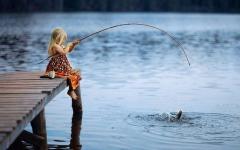He lives in a dense forest,
He himself is round and prickly.
Guess who it is?
Well of course it is....
It’s easy for us to recognize him,
It's easy to recognize:
He's tall
And he sees far.
Long-legged, long-necked,
Long-billed, gray body,
He walks and wanders through the swamps,
There he looks for frogs and catches them.
/crane/
What common? Yes, the letter Z!
1. Verbal snail.
Very interesting idea- inquire from Rybitskaya Elena Viktorovna

3. Repeat after me a series of syllables:
Zha-zhu-zhu-zhi, zhi-zhu-zha-zho
Wait-wait-wait-wait, wait-wait-wait
4. Find words starting with the letter F ()

5. The hedgehog tailor sewed the clothes. Name and write down the names of the clothes, and indicate the sound Z in the words.()
6. The animals came to a large puddle to drink. Only those animals whose names begin with the sound J are thirsty. Draw them a path to the puddle. Does the word "puddle" have a J sound? ()

7. Read the syllables( , more )

8a. I will name words, if you hear the sound Zh in a word, clap your hands ()
= jacket, shirt, T-shirt, scarf, vest, hat, shorts, breeches, trousers, trousers, socks, jeans
==How can all these words be called in one word? Cloth
8b. Didactic exercise “Clap your hands” if you hear the sound Z ()
= f, m, b, f
= zha, ha, zhu
= Zhenya, belly, milk, bed, giraffe
9. From a series of words, choose a word with the sound Ж ()
= mouse, frog, toad
= things, vegetables, acorns
= spring, clothes, car
= hedgehogs, mice, puppies
10. Game "Who is attentive." I name the word, and you say where the sound “w” is in the word: at the beginning, middle or end. ()
= snakes, swifts, cat, scissors, heron, hedgehogs, snowflake, skis, beetle, castle, fox, pencil
Hedgehog
The calf saw the hedgehog and said to him:
- I will eat you!
The hedgehog didn’t know that calves don’t eat hedgehogs, he got scared, curled up into a ball and snorted:
- Try! ...
With its tail raised, the stupid calf jumped around the hedgehog and, butting him, licked him on the right side.
—
Oh! Oh! Oh! - the little calf roared and rancomplain to mother cow:
—
The hedgehog bit me hard on the tongue!
The cow slowly raised her head, looked thoughtfully at her foolish son and began to continue chewing the grass...
35. Use a yellow pencil to paint over all areas with the letter Z ()

Differentiation of sounds Ж and Ш
* source #1
1) Insert the missing letters Ш or Ж into the words, underline the “extra” word on each line
_uba, vi_nya, _uk, kalo_a, gru_i, aba_ury, _urnal, _irny
_a_ki, _ur_al, _i_ki, _a_da, _i_a, _taniki, _u_elitsa, po_i_e
can_e_b, _me_b, _ari_b, go
2) Zhanna and Masha have a birthday. Give gifts for Zhanna with the letter Z, and for Masha - with the letter Sh ()
(you can place 2 dolls on the table, put the letters Zh and Sh next to them to indicate who’s name is. When naming words, you can move chips to the dolls)
= beetle, hedgehog, hat, chess, knives, tire, fur coat, car, bear cub, skis, ears, mouse, cat, acorns
3) “Get in order” Help the snake and the beetle sort out their things. Remember that a beetle owns objects whose names contain the sound Zh, and a snake - Z. ()

4) What word will you get if you replace the sound Ш with the sound Ж? ()
= ball - heat
= ears - snakes
= pole - gesture
= shawl - sorry
= sew - live
= sewed - lived
= waves - smears
= Lyosha - lying down
= Lusha - puddle
Lesson notes on sound production [g]
Purpose of the lesson:
Clarification of the articulation of the sound /zh/, production of the sound /zh/, consolidation in isolated pronunciation;
Development of speech motor skills;
Development of phonemic awareness and phonemic analysis;
Strengthening the connection between sound and letter / w/
Equipment: mirror, pictures, numbers, word charts.
Progress of the lesson
1. Organizational moment
We speak beautifully, clearly, so that everyone understands
We definitely remember what we taught in class.
2. Subject message
There are several pictures on the board: a beetle, a spider, a bird.
The speech therapist reads the riddle:
I'm sitting on a branch
I'm sitting on a branch
I keep repeating the letter
Knowing this letter firmly
I say spring and summer.
Who's that buzzing on the branch? Find the picture.
What is the first sound in the word “bug”? This sound resembles the buzzing of a beetle. Today we will learn to pronounce the sound /zh/. To do this, you need your lips and tongue to work well.
3. Articulation gymnastics.
(The Tale of the Merry Tongue)
For lips: Speech therapist reads a riddle
This house has red doors
There are white animals next to the doors.
Animals love sweets and buns.
Did you guess it? This house is a mouth. The doors in the house open and close. Like this: mouth open: “smile”
Mouth closed: “tube”
“frog guys”
Frogs really like pulling their lips straight towards their ears.
They smile, laugh, and their eyes are like saucers.
“elephant guys”
I imitate an elephant, pulling my lips with my proboscis.
For the tongue: In this house, my friend, lives a cheerful tongue.
Oh, he’s a smart boy and a bit of a naughty boy
So he went out for a walk, to sunbathe on the porch (his tongue lies on his lower lip)
“shovel” - place your tongue with a shovel and hold it a little,
He lies quietly and does not tremble at all.
Then a light breeze blew and the tongue shivered (the tongue is an arrow), hid in the house and closed the door behind itself (remove the tongue, close the mouth).
And outside, the sun hid behind the clouds and the rain began to drum on the roof (we hit our teeth with our tongue and say “d-d-d-d”).
The tongue was not bored at home, the ceiling was whitewashed)
“Painters” (we are painters today - we will whitewash the ceiling).
The tongue looked at the clock, it was ticking: “tick-tock” (mouth open, lips in a smile, with the tip of the tongue touching the corners of the mouth) - “clock”
“It’s time for me to sleep,” thought Tongue.
4. Sound production / w /
(the staging technique is used by voicing the sound / w /).
Place your hand on the neck. Make the sound /sh/, and now say it loudly, so that your throat trembles. The sound is /zh/.
After a long utterance, it is clarified that this is how a beetle buzzes. Children make a sound. The speech therapist corrects and clarifies the articulation of sound.
5. Clarification of articulation / w/ (in front of the mirror)
Let's say /zh/ again. What position are your lips in?
In what position are the teeth - closed or open?
Where is the tip of the tongue?
The tip of the tongue is raised upward, but does not touch the upper teeth. The tip of the tongue and the lateral edges are curved and cup-shaped.
The speech therapist shows the position of the tongue using his hand.
What does the tongue resemble? (cup).
6. Development of phonemic analysis
A) Game “Catch the sound” (clap your hands when you hear the sound /zh/)
From a series of sounds: M, Zh, V, R, Zh, L, Zh….
From a series of syllables: zha, va, lo, jo, du, zhu...
From a series of words: toad, glass, jump, shovel, TV, giraffe….
B) Distribute the pictures under the diagrams: F___________ _____________ F__________
(at the beginning of a word) (in the middle of a word)
Children first characterize the sound /w/: consonant, hard, sonorous.
On the board there are pictures: skis, giraffe, acorns, jacket, vest, pajamas, hedgehogs, magazine.
Children must distribute the pictures under the schemes: under the first scheme there are pictures in the name of which the sound /zh/ is at the beginning of the word, under the second scheme - /zh/ in the middle of the word.
C) Determining the place of the sound /zh/ in a word using the number series: 1, 2, 3, 4, 5, 6, 7, 8, 9, 10.
The speech therapist pronounces the words: dinner, leather, fire, boots, spring.
7. Strengthening the connection between the sound and the letter “Zh”.
Show the letter “zh”. What does she look like?
Make a letter out of sticks.
Select pictures with sound /f/.
While performing this task independently, the speech therapist individually works with children whose articulation of the sound /zh/ is not yet sufficiently consolidated.
The science of speech defects, studying ways to eliminate them, as well as special exercises for the language - speech therapy. Not only children, but also adults turn to this science in order to pronounce sounds correctly and beautifully and to be successful in any business where they need to convince, inspire, and share information with other people. To correct speech defects, regular speech therapy exercises for children and adults.
Some parents face speech problems in their children
In our article you will find useful tips and for yourself to acquire the skills of correct articulation, as well as a lot of valuable techniques for correcting the pronunciation of sounds by your children.
In order to achieve high results in business and have the ability to persuade, it is necessary not only to speak impeccably, but also to express your thoughts clearly and legibly. Not everyone can immediately master this science, so there are various practices to improve skills.
Speech therapy exercises for adults
Speech is unclear in adults, too, so ask your friends if you have any pronunciation problems. You can simply record a few phrases on a voice recorder and then listen carefully to your voice.
There are speech therapy exercises for adults, the main of which is memorizing and studying tongue twisters. If it is better for children to offer it in a playful way, then for adults it is enough to give them a task to practice the skill.

Problems with pronunciation in most cases are easily corrected after a course of regular lessons
So, everyone must follow the following rules during training:
- read the tongue twister 3-4 times;
- repeat it slowly, pronouncing it clearly and distinctly;
- when you can pronounce everything correctly, you can speed up the pace;
- it is important to pronounce all sounds efficiently, and not quickly;
- short tongue twisters need to be spoken in one breath.
The same tasks are suitable for adults and children:
- clink your tongue, imitate a horse galloping;
- smile and try to reach the roof of your mouth with your tongue;
- imagine that you are licking honey from your lips without touching the corners of your lips;
- press your tongue between your teeth and move it up and down.
To make sure the tasks you perform are correct, use a mirror. To track your progress, read an excerpt from a story with an expression or a poem, paying attention to all punctuation marks.
Speech therapy exercises for children
All speech therapy exercises for children should be performed unnoticed by the baby, so that it is all a serene pastime in a playful way.
You can come up with funny names for each task, because the child loves associations, sometimes the most unexpected ones. So, the kids will like such as “Horse”, “Chickens”.

Having identified problematic sounds, you can select certain exercises to correct the problem.
Completing tasks contributes to the development of the baby’s articulatory apparatus, allows you to eliminate pronunciation defects and form the necessary speech skills.
- “Gate”: you need to open your mouth wide to relax your lips, repeat 6 times.
- “Spatula”: you should place your tongue on your lower lip.
- “Vase”: place the tongue on the upper lip, repeat 5 times.
- “Ball”: inflate one or the other cheek, as if a ball is rolling in the mouth.
Your child’s pronunciation will be clear if for training you take words with a large number of consonants: plate, girlfriend, foreign tourist, karateka, bunch, bed, mug, jump. They need to be spoken out daily and trained to hear every sound.
Speech therapy exercises for hissing sounds
Children often fail to pronounce sibilants correctly for a long time; sometimes they need to practice until school. It’s good if the child’s environment speaks and can correct the child’s pronunciation. Let's consider which speech therapy exercises for hissing sounds are most relevant. They are suitable for both adults and children, if such problems exist.
Speech therapy exercises for the letter w
It is important to know what to do when articulating. So, first we round the lips and round them, the teeth do not close, the edges of the tongue are pressed against the teeth, and it itself forms a scoop. We exhale air with the addition of a voice when pronouncing the hissing sound.
Here are the basic speech therapy exercises for the letter w:
- “Accordion” to strengthen the muscles of the tongue in a vertical position: open your mouth, smile, and press your tongue to the roof of your mouth. Open and close your mouth 5 times.
- “Pie”: open your mouth and smile, curl your tongue, lifting the edges. Count to 15 and then repeat.

Classes to correct the pronunciation defect of the sound z
They can also be used when training the pronunciation of other sibilants.
Speech therapy exercises for the sound h
There are also speech therapy exercises for the sound h:
- “Mushroom” for stretching the hyoid frenulum: open the mouth, stretch the lips, and touch the palate with the tongue so that its edges are pressed tightly. Repeating, you need to open your mouth wider.
- “Trick”: stick out your tongue, smiling, lift the tip, blow the cotton wool off your nose. Repeat 5-6 times.
Such exercises help strengthen the muscles of the tongue and develop its mobility, which is useful when pronouncing hissing words.
Speech therapy exercises for the letter w
There are also speech therapy exercises for the letter w:
- “Cup”: place your tongue on your lower lip, then lift it and hold it for a few seconds. Repeat 8 times.
- “Football”: stretch out your lips with a straw and blow on cotton wool in the shape of a ball, trying to get into an improvised goal.

Lessons to correct problems with sound
These tasks should be completed during games every day so that the child’s articulatory apparatus develops and pronunciation improves.
Speech therapy exercises for consonants
Often, both adults and children have difficulty pronouncing certain consonants, so speech therapy exercises for consonant sounds are needed to correct speech.
Speech therapy exercises for the letter L
Let us now consider speech therapy exercises for the letter l:
- “Train whistle”: stick out your tongue and make a loud “ooh-ooh” sound.
- “Tongue song”: you need to bite your tongue and sing “lek-lek-lek.”
- “Painter”: you need to press your tongue with your teeth and move it up and down, as if you were painting a house.

Practicing movements for the correct pronunciation of the sound l
If the training is intended for children, then you can come up with a game in which you will need to complete these tasks.
Speech therapy exercises for the letter c
Let’s now look at speech therapy exercises starting with the letter c:
- show how a pump inflates a tire;
- depict how the wind blows;
- convey how a balloon deflates;
- show what you can hear if you blow into a bottle with a narrow neck.
In order to bring the child closer to understanding what they want from him, put a toothpick on his tongue and ask him to press it with his teeth, smile and blow out air.
Speech therapy exercises for the sound r
Let's find out speech therapy exercises for the sound r, which is the most problematic for all children:
- “Brushing your teeth”: you need to move the tongue along the inside of your teeth in different directions.
- “Musician”: with your mouth open, drum your tongue on the alveoli, saying “d-d-d”, reminiscent of a drum roll. You can check the correct execution by holding a piece of paper to your mouth. It should move with the air flow.
- “Dove”: you need to move your tongue back and forth along the upper lip, copying the bird “bl-bl-bl”.

Training for the correct pronunciation of the sound p
These training tasks will help overcome the most difficult sound for babies, as the articulatory apparatus will be more mobile. After this, you can begin to select words with the letter r.
Speech therapy exercises for the sound t
Sometimes simple sounds people find it difficult to pronounce correctly when it is difficult to understand the meaning of a word or even a statement. Such problems must be dealt with. And here are the most effective speech therapy exercises for the sound t:
- the tip of the tongue touches the upper teeth and pronounce “t-t-t”;
- imitating a knock-knock hammer or a tick-tick clock;
- we walk along the road with the baby, repeating “top-top-top”;
- learning the tongue twister “Dust flies across the field from the clatter of hooves.”

How to do exercises for correct pronunciation of the sound t
It will also be useful to repeat these exercises every day in order for the training to be effective. Watch what your baby listens to, as speech is formed depending on how we perceive sounds by ear. Make sure that all family members do not lisp or use words in a diminutive form in front of the baby.
Speech therapy exercises for stuttering
All speech therapy exercises for stuttering are aimed at developing fluency of speech. Try to relax your child before classes, use play forms of work that are most appropriate in childhood.
Let's take a look at the most necessary tasks in such a situation:
- Read the poem to calm music without words, small at first, and over time complicate the task.
- Clap your hands for the vowel sounds that appear in the word.
- “Conductor”: chant a few words, syllables, vowel sounds, focusing on waving your arms and observing the rhythm.
- “Carousel”: you need to walk in a circle, repeating the phrase “We are a funny carousel oops-opa-opa-pa-pa.”
Remember that you must pay attention to speech breathing during classes. Start each session gradually and smoothly, and then you can speed up the pace if everything works out for you.
Problems with speech and articulation can be resolved over time and through daily training, willpower and motivation.
We wish you success!
When articulating the sound Zh
- lips rounded and slightly pushed forward;
- teeth brought together;
- wide tongue tip raised to the alveoli or to the anterior edge of the hard palate and forms a gap with it; the middle part of the back of the tongue drops, but the edges of the tongue are pressed against the lateral teeth; the back of the back of the tongue rises and pulls back;
- in the middle of the tongue there is a warm air stream, which is easily felt by the palm of the hand brought to the mouth;
- soft sky lifted and pressed against back wall pharynx, closes the passage to the nasal cavity; the air stream goes through the mouth;
- vocal folds tense, hesitant and giving voice.
Automation of sound
1. We fix the pronunciation of the sound Ж in straight syllables.
1). Pronounce syllables 3-4 times:
zha-zha-zhazho-zhe-zhu-zhu-zhuzhi-zhi-zhizhe-zhe-zhe
2) Pronounce syllables with a change in rhythmic pattern:
zha-zha - zha-zha-zhazho-zhu - zhu-zhu-zhu-zhu - zhu-zhu-zhu
zhi-zhe – zhi-zhe-zhe-zhe – zhe-zhe-zhe
3) Pronounce syllables with changes in stress:
zha-zha-zhazho-zhu-zhi-zhi-zhizhe-zhe-zhezhu-zhu-zhu
zha-zha-zhazho-zhu-zhi-zhi-zhizhe-zhe-zhezhu-zhu-zhu
4) Repeat syllables 3-4 times:
zha-zhu-zhu-zhu-zha-zhi-jojo-zhu-zha-zhi
- 2.
Words with the sound Z at the beginning:
It's a pity, toad, sting, sting, pity, reaper, jacket, harvest, complaint, Jeanne, greedy, greedy, jasmine; liquid, live, live, alive, lives, lived, belly, animal, liquid, housing, residential; turn yellow, yolk, jelly, Zhenya, yellow, acorn, gutter; bug.
- 3.
Words with the sound Z in the middle:
Hedgehogs, leader, counselor, pajamas, run, lie down, fire, fireman, leather, Snezhana, respect, puddle, lying down; burn, meadow, flag, berezhok, uzhonok, ironing, lying, walking, looking, showing, seeing, knitting, licking, smearing, already, respect; knives, hedgehogs, lie down, show, bait, snake, hedgehog, skis, dinner, fawn, dozen, dinner, care, blackberries.
- 4.
We fix the pronunciation of the sound Ж in words with a straight syllable.
"One is many":
Say both words:
beetle - beetles
puddle - puddles
toad - toads
ski - skis
hedgehog - hedgehogs
creeper - squeezed
yolk - yolks
hedgehog - hedgehogs
jacket – jackets
knife - knives
belly - bellies
acorn - acorns
pajamas – pajamas
teddy bear - cubs
- 5.
We fix the pronunciation of the sound Ж in words with a straight syllable.
“Call me kindly”:
snow - snowball
iron - iron
hedgehog - hedgehog
haystack - haystack
boot - boot
belly - tummy
beetle - bug
flag - checkbox
meadow - meadow
shore - shore
circle - circle
jacket - jacket
- 6.
We fix the pronunciation of the sound Ж in words with a straight syllable.
Listen to the word, replace the first sound in it with the sound Ж and say a new word:
onion - ... (beetle), hall - ..., give - ..., woman - ..., little - ..., package - ..., concrete - ..., ticket - ..., bunch - ..., fork - ..., root - ..., Venya - ... .
- 7.
We fix the pronunciation of the sound Ж in words with a straight syllable.
Listen to the word and divide it into syllables (clap):
floors (uh-ta-zhi), uzhonok, uzhata, acorns, leather, belly, bellies, jasmine, jasmines, bug, beetle, boot, iron, hedgehog, hedgehog, snowball, greedy, blackberry, flag, vest,
sorry, show me, they are knitting.
- 8.
We fix the pronunciation of the sound Ж in words with a straight syllable.
Learn related words:
hedgehog - hedgehog, hedgehog, hedgehogs, hedgehog, hedgehog;
already - snake, snake, snake, snake, supper.
- 9.
“Funny score: 1 – 2 – 5”:
1 beetle – 2 beetles – 5 beetles
1 hedgehog – 2 hedgehogs – 5 hedgehogs
1 hedgehog – 2 hedgehogs – 5 hedgehogs
1 hedgehog – 2 hedgehogs – 5 hedgehogs
1 hedgehog – 2 hedgehogs – 5 hedgehogs
1 foal – 2 foals – 5 foals
- 10.
We fix the pronunciation of the sound Ж in phrases.
“Funny score: 1 – 2 – 5”:
1 knife – 2 knives – 5 knives
1 snake – 2 snakes – 5 snakes
1 snake – 2 snakes – 5 snakes
1 bite – 2 bites – 5 bites
1 acorn – 2 acorns – 5 acorns
1 bear cub – 2 bear cubs – 5 bear cubs
- 11.
We fix the pronunciation of the sound Ж in phrases.
leather bag (which one?) – leather
leather jacket (what kind?) – leather
leather coat (what kind?) – leather
leather boots (which ones?) – leather
iron shovel (what kind?) – iron
iron nail (which one?) – iron
bucket made of iron (which one?) – iron
buckets made of iron (which ones?) – iron
blackberry filling (what kind?) – blackberry
blackberry juice (what kind?) – blackberry
blackberry jam (what kind?) – blackberry.
- 12.
We fix the pronunciation of the sound Ж in phrases.
"Whose? Whose?":
THE CRANE has a head (whose?) - a crane's
beak (whose?) – crane’s
feather (whose?) – crane
wings (whose?) – crane’s
THE BEAR'S head (whose?) is bearish
tail (whose?) – bearish
ear (whose?) – bear
paws (whose?) - bear's
- 13.
We fix the pronunciation of the sound Ж in phrases.
"Whose? Whose?":
THE CAMEL'S head (whose?) is a camel's
tail (whose?) – camel
ear (whose?) – camel
legs (whose?) – camel
RHINO HAS the head (whose?) – rhinoceros
tail (whose?) – rhinoceros
ear (whose?) – rhinoceros
legs (whose?) – rhinoceros
- 14.
We fix the pronunciation of the sound Ж in phrases.
Agreement of adjective with noun in gender and number.
“Funny score: 1 – 2 – 5”:
1 leather jacket – 2 leather jackets – 5 leather jackets;
1 yellow pajamas – 2 yellow pajamas – 5 yellow pajamas;
1 buzzing beetle – 2 buzzing beetles – 5 buzzing beetles;
1 clumsy bear cub - 2 clumsy bear cubs - 5 clumsy bear cubs.
- 15.
The hedgehog has a hedgehog. The walrus has walruses. The snake is already jaded. The toad lies in a puddle. The toad lies in a puddle. Zhenya sharpens knives. Zhanna has yellow pajamas. Zhanna lives on the fifth floor. Snezhana has a live hedgehog. The beetle buzzes: w-w-w-w. Show me your knife, Zhenya. Zhora ran out onto the meadow. There are gooseberries and blackberries in the garden.
- 16.
Yellow-skinned acorns lie under the oak tree. Hedgehogs were running next to the hedgehog. The cranes are flying, and the leader is ahead. Children do not harm animals, and animals love them. There is a flag on the shelf. There is a clumsy little bear in a cage. There is a yellow lampshade in the room.
- 17.
We fix the pronunciation of the sound Ж in sentences.
take care of a hedgehog
I'm taking care of a hedgehog
you are taking care of a hedgehog,
He …,
she …,
We …,
You …,
They ….
- 18.
We fix the pronunciation of the sound Ж in sentences.
Conjugation in the present tense according to the pattern.
run after the teddy bear
I'm running after the bear cub
you are running after the bear cub,
He …,
she …,
We …,
You …,
They ….
- 19.
We fix the pronunciation of the sound Ж in sentences.
Complete the sentences about the hedgehog with the hedgehogs.
In our forest live... (hedgehogs with hedgehogs).
Sitting under a bush...
Zhenya runs to...
Zhanna runs after...
- 20.
We fix the pronunciation of the sound Ж in pure pronouncements.
Learn:
Zha-zha-zha - two hedgehogs are walking.
Jo-jo-jo - I’ll go out to the meadow.
Zhu-zhu-zhu - I’ll tie a ribbon.
Zhi-zhi-zhi - I have knives.
- 21.
Learn:
* * *
The poor hedgehog cringes:
He can't do everything.
And the skin turns blue -
He can't do that.
* * *
The beetle was buzzing, buzzing, buzzing,
The ox lay, lay, lay,
And then he asked:
- Tell me, why are you buzzing like that?
- 22.
We fix the pronunciation of the sound Ж in poetry.
Learn:
South Beach
I'm lying on south beach
Too lazy to even want something.
It's terrible to live on a hot bed -
After all, it can burn your skin.
* * *
A beetle is buzzing over the honeysuckle,
The casing is heavy on the beetle.
- 23.
We fix the pronunciation of the sound Ж in poetry.
Learn:
* * *
The beetle buzzes: “Zhu-zhu-zhu!
I live, I don’t worry,
I'm sitting on a branch
And I buzz, I buzz, I buzz.”
* * *
A hedgehog sews for his hedgehogs
Eight leather boots.
On everyone's feet
Hedgehog boots.
- 24.
We fix the pronunciation of the sound Ж in poetry.
Learn:
* * *
The spruce tree looks like a hedgehog
Spruce in needles, hedgehog too.
Poor hedgehog
Little crane, circling by the puddle,
The bear cub was pushed onto the hedgehog.
The respected beetle buzzed:
“It’s hard for the poor hedgehog!”
- 25.
We fix the pronunciation of the sound Ж in syllables with a combination of consonants.
press-press-press-press
wait-wait-wait-wait
reap-reap-reap-reap
zla-zlo-zhl-zhly
azhm-ozhm-zhm-zhm
azhd-zhd-zhd-zhd
azhn-ozh-zh-zhn
azhl-ozhl-uzhl-yzhl
mzha-mzhu-mzhu-mzhi
ja-jo-ju-ji
nzha-nzho-nzhu-nzhi
lie-lie-lie-lie
zhma-ozhma-zhma-zhma
yazhma-yozhma-yuzhma-yzhma-yezhma
- 26.
We fix the pronunciation of the sound Ж in words with a combination of consonants.
Pronounce the words, clearly pronouncing the sound Z.
Important, necessary, possible, important, wallet, paper, necessary, everyone, scissors, artist, friendly, skier, ski, ski track, cakes, bookish, gentle, diligent, polite, neighbor, blizzard, snowy, taiga.
Enmity, need, win, reward, clothes, hope, rain, wait.
- 27.
We fix the pronunciation of the sound Ж in sentences with a combination of consonants.
There are false honey mushrooms on the stump. The artist draws skiers. Clothes got wet in the rain. There are many books on the bookshelf. Skiers run along the track. The canary has a gentle voice. The children ate cakes. The winners are being awarded today. We have a friendly family. Winter is blizzard and snowy. Every day we walk in the nearby forest.
Important documents are in the wallet. Zhenya cuts out paper lace with scissors. Zhora is a polite and diligent boy. The bear is a taiga resident. Zhanna goes to the baggage car. The Snezhans bought new clothes. After the rain you can run through puddles.
- 28.
We fix the pronunciation of the sound Ж in poems with a combination of consonants.
* * *
Every bug is buzzing about
How creepy it is to be a beetle, -
Anyone can offend.
How can you not buzz about this?
* * *
Clumsy bear cub
Dinner awaits every day
After all, there's a bear cub for dinner
He readily drinks liquid honey.
- 29.
We fix the pronunciation of the sound Ж in poems with a combination of consonants.
Learn poems by clearly pronouncing the sound Z.
* * *
Rain, rain,
Lei, lei!
Don't be sorry for the drops! Lei!
Rain, rain,
We need you! –
The toads sang while lying in a puddle.
* * *
A greedy toad lives in the world,
Greed doesn't let that toad sleep.
Even creepy - not alone
She's so greedy!








